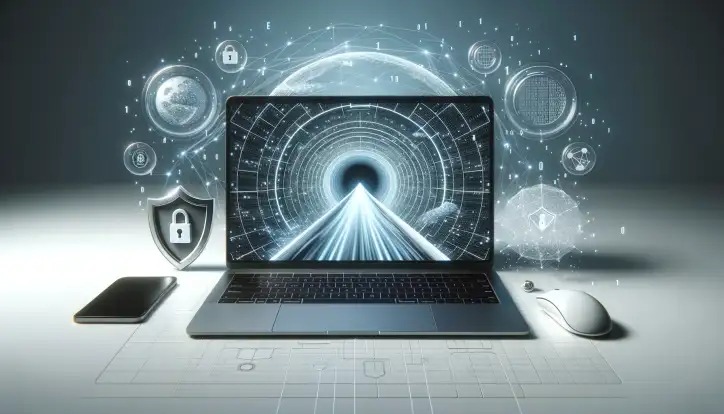What is Double VPN? A Comprehensive Guide for Beginners


Did you know that a double VPN, also known as a VPN chain, is a technology that gives you an extra layer of internet privacy? It's not just a need anymore, it's a necessity. In this article, I'll dive into the meaning of double VPN, drawing on my 15 years of experience in the tech industry to give you a clear understanding of this vital security measure.
What is Double VPN and how does it work?
A double VPN, often called a VPN chain, is a technology that provides an extra layer of online security.
It works by routing your internet traffic through two separate VPN servers, not just one.
This means your data is encrypted twice, adding a second layer of privacy.
The underlying technology of Double VPN
The underlying technology of Double VPN involves a dual-layered encryption process.
This means your data is sent through not one, but two separate VPN servers, adding an extra layer of security.
It's akin to a digital tunnel within a tunnel, your data being encrypted twice over.
This technology is particularly beneficial for those who require an additional level of privacy online.
It's vital to note that while Double VPN increases security, it may also slow down your internet speed due to the double encryption process. So definitely ensure that you pick VPN services that maintain solid speeds despite being routed twice.
However, for those prioritizing privacy over speed, Double VPN's underlying technology provides a robust solution.
Steps involved in the Double VPN process
The Double VPN process involves a series of steps for optimal security.
First, your internet traffic is routed to the first VPN server, encrypting your data.
Next, this encrypted data is sent to a second VPN server where it gets encrypted again, adding another layer of protection.
This double encryption ensures that even if one layer is compromised, your data remains secure.
It's like having two locks on your door - even if a thief manages to pick one, they're still faced with another.
So, it's best to use it when you need an extra layer of privacy, like when dealing with sensitive information.
Comparing Single VPN to Double VPN
Comparing a single VPN to a double VPN reveals significant differences.
A single VPN routes your traffic through one server, masking your IP address.
On the other hand, a double VPN adds an extra layer of security by passing your data through two separate servers.
This makes it even harder for anyone to trace your online activities.
However, it's worth noting that using a double VPN may slow down your internet speed due to the additional encryption process.
Still, for those who prioritize privacy and security over speed, a double VPN could be a suitable choice.
Benefits and Disadvantages of using Double VPN
The Benefits of Double VPN
Double VPN offers a wealth of benefits to its users.
- Firstly, it provides an extra layer of security by encrypting your data twice. This means that even if one layer is compromised, the second layer keeps your information safe.
- Additionally, it enhances privacy by routing your connection through two separate servers, making it even harder for prying eyes to track your online activity.
The Disadvantages of Double VPN
Double VPNs, while offering enhanced security, do have some downsides.
- One such disadvantage is the decrease in internet speed.
- When you use a double VPN, your data is encrypted twice which can significantly slow down your connection.
- Also, setting up a double VPN can be quite complex, especially for non-tech savvy individuals.
- Moreover, double VPNs can be overkill for most users, as a single VPN is typically sufficient for most security needs.
- Lastly, they can be more expensive than regular VPNs, adding an extra cost for a service that might not be necessary for the average user.
Why do I need double encryption?
Well, in the world of cyber threats, a single layer of security might not be enough.
Double encryption, also known as double VPN, adds an extra layer of privacy and security to your online activities.
Protecting sensitive data from prying eyes
Protecting sensitive data from prying eyes is a core function of a double VPN.
It encrypts your data not once, but twice, providing an extra layer of security.
Think of it as a secure tunnel within another tunnel, ensuring your data is safe even if one layer is compromised.
But remember, while double encryption enhances security, it may slow down your internet speed due to the extra processing required.
Still, for those who prioritize privacy and data protection, the trade-off is often worth it.
Ensuring safe online transactions
Ensuring safe online transactions is straightforward with a double VPN.
It's an advanced security measure that routes your connection through two servers instead of one, encrypting data twice.
This double encryption provides an extra layer of security, making it nearly impossible for hackers to decipher.
So, when you're making online transactions, a double VPN can protect your sensitive information like credit card details.
Reducing risks of data breaches
Reducing risks of data breaches is a significant advantage of double VPNs.
They offer an extra layer of protection by encrypting your data twice, making it harder for hackers to decipher.
Think of it as a safe within a safe.
Even if the outer layer is compromised, the inner layer remains secure.
This double encryption makes your data less appealing to cybercriminals, who typically look for easy targets.
So, while no system is entirely foolproof, using a double VPN considerably lowers your risk of a data breach.
When don’t I need Double VPN?
Situations where single VPN suffices
A single VPN often suffices in situations where basic privacy is the main concern.
For instance, if you're merely trying to keep your browsing habits private from your Internet Service Provider or want to access geo-restricted content, a single VPN will do the trick.
However, it's worth noting that a single VPN won't provide the same level of security as a double VPN.
That's because a double VPN encrypts your data twice, making it even harder for hackers to decipher.
But for most everyday online activities, a single VPN should be more than enough.
Just remember to choose a reputable VPN provider to ensure your online safety.
Understanding the potential speed trade-offs
Understanding potential speed trade-offs with a double VPN is essential.
It's like driving a car with two engines; it's more secure, but it can slow you down.
Why?
Because your data is encrypted twice, causing a slight delay.
However, this doesn't mean you'll be crawling along the digital highway.
Most users report a negligible speed reduction, and the added security is often worth the trade-off.
So, weigh your needs and decide if a double VPN is right for you.
Balancing security needs with usability
Balancing security needs with usability in a double VPN isn't as daunting as it sounds.
In fact, it's quite manageable once you understand the basics.
A double VPN enhances security by encrypting data twice, but this can sometimes slow down your internet speed.
However, with the right provider, this impact can be minimized to ensure a smooth online experience.
So, while a double VPN might be overkill for everyday browsing, it's an excellent tool when handling sensitive information.
What is the difference between Double VPN and VPN chaining?
Double VPN and VPN chaining are two different concepts in the world of online privacy.
While both provide an extra layer of security, their methods differ.
Double VPN, as the name suggests, routes your data through two separate VPN servers.
This adds an additional layer of encryption and hides your online activities even more effectively.
On the other hand, VPN chaining, also known as multihop VPN, involves passing your data through multiple VPN servers, not just two.
This can provide even greater anonymity but may slow down your connection speed.
Understanding these differences helps you choose the right tool for your online security needs.
Key distinctions in their setup and functionality
Key distinctions in Double VPN and VPN chaining setups and functionality lie in their complexity and security levels.
While both involve using multiple VPN servers, Double VPN uses two in a fixed sequence, whereas VPN chaining allows for more flexibility.
In terms of functionality, Double VPN provides a simplified setup but with robust security, encrypting data twice.
On the other hand, VPN chaining can involve multiple servers, increasing complexity but also offering greater security and anonymity.
However, the latter may impact internet speed more significantly due to the additional encryption processes.
In essence, the choice between the two depends on your specific needs for security versus speed and simplicity.
Which method offers better security?
Double VPN provides better security than VPN chaining.
The reason lies in its structure: it encrypts data twice, passing it through two separate servers.
In contrast, VPN chaining involves multiple VPN servers, which might appear more secure but actually increases the risk of one server being compromised.
Also, managing connections in VPN chaining can be complex, increasing the chance of errors.
Double VPN, with its simpler setup and double encryption, thus offers a more secure method.
Let’s double up your security
Popular VPN services offering Double VPN feature
Popular VPN services like NordVPN and ExpressVPN offer the Double VPN feature.
It's a powerful tool that routes your internet traffic through two VPN servers, not just one.
This extra layer of encryption makes it even harder for anyone to track your online activities.
But remember, while a Double VPN increases security, it can also slow down your connection speed.
So, it's a trade-off between enhanced security and speed.
Use it when necessary, like when dealing with highly sensitive information.
Best practices for maintaining Double VPN security
Double VPN security can be maintained best by regularly updating your VPN software.
This ensures you're not vulnerable to any known security flaws.
Also, always use strong, unique passwords for your VPN accounts.
Remember to turn on your VPN every time you go online, especially on public Wi-Fi networks.
Lastly, opt for a VPN service that offers advanced security features, such as kill switch and DNS leak protection.
FAQ
What is a double VPN?
Well, it's a technology that encrypts your data twice, adding an extra layer of security to your online activities.
Sounds impressive, right?
But how does it work?
First, your data is encrypted at your device, then it's sent to the first VPN server.
At this server, the data is encrypted again and sent to the second VPN server.
Finally, it reaches the internet, securely encrypted twice over.
This is great for those who want extra security, but remember, it can slow down your internet speed slightly.
Still, for many, the added security is worth it.
Is Double VPN untraceable?
Double VPN is not entirely untraceable, but it significantly increases online anonymity.
By routing your data through two separate VPN servers, it adds an extra layer of encryption and hides your IP address twice.
However, a persistent and skilled hacker might still find ways to trace it.
Is a double VPN better than a single VPN?
Yes, a double VPN is generally better than a single VPN.
It provides an extra layer of security by encrypting your data twice.
However, it's important to note that while the added security is a plus, it can slow down your internet speed.
So, if your priority is speed over security, a single VPN might be a better choice.
But if you're looking for maximum privacy and security, then a double VPN is the way to go.
Is Double VPN fast?
Double VPN is not typically fast.
Its speed is compromised due to the double encryption process it undergoes.
It's like going through two security checkpoints instead of one; it's more secure but takes longer.
However, the decrease in speed is often negligible and may not be noticeable in everyday internet use.
Yet, for tasks requiring high-speed internet, such as gaming or streaming, the difference could be significant.
Why was double VPN illegal?
Double VPN was considered illegal due to the intense level of anonymity it provides, often misused for illicit activities.
However, it's not illegal everywhere, as laws vary across countries.
In essence, a double VPN encrypts your data twice, making it extremely difficult to track.
While it's a powerful tool for privacy, its misuse has led to controversies and legal issues.
References
microsoft.comcisco.com
Read more
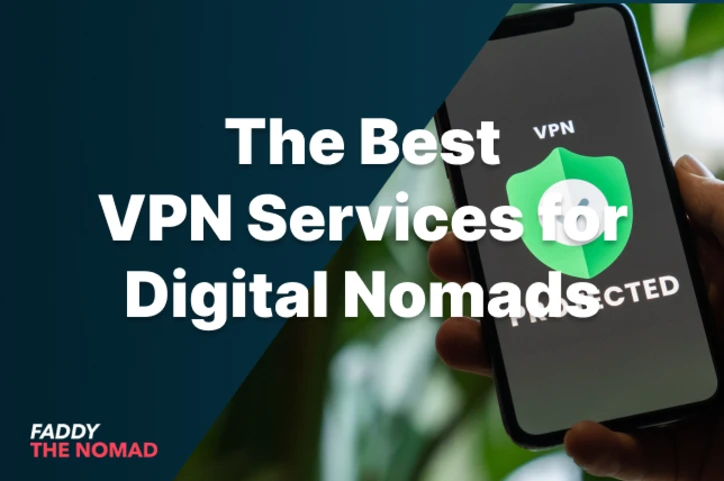
The 7 Best VPN Services in 2023 for Digital Nomads
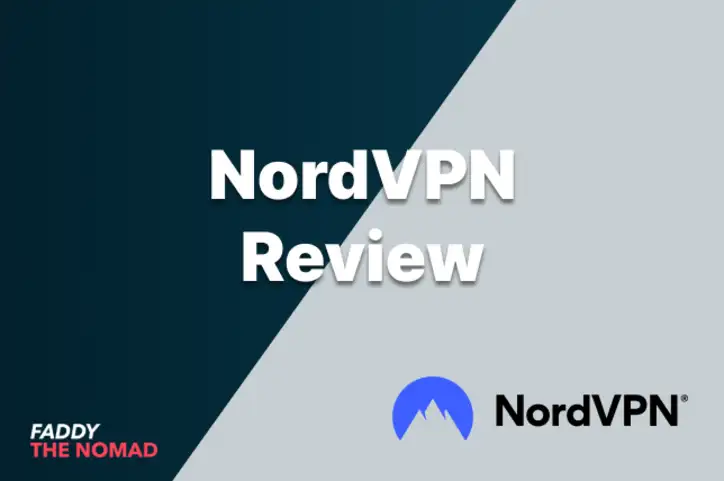
NordVPN Review 2023: Is It Worth The Hype?
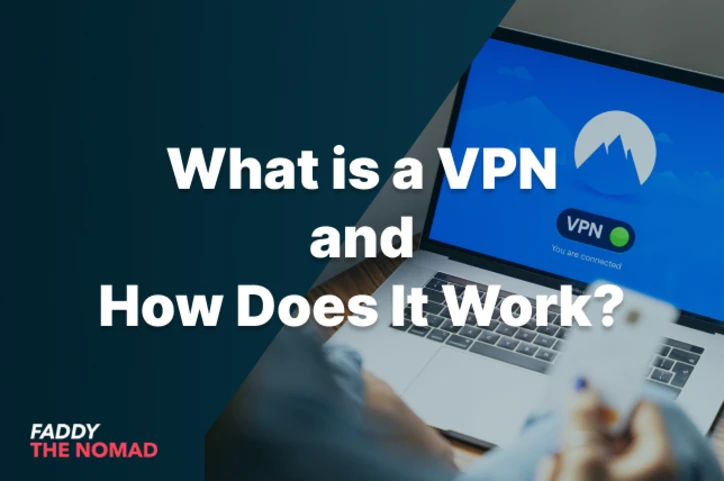
What is a VPN and How Does It Work?
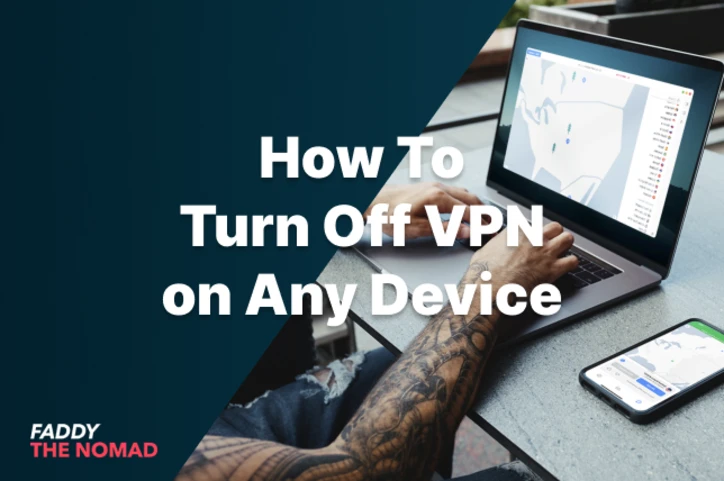
How To Turn Off VPN on Any Device
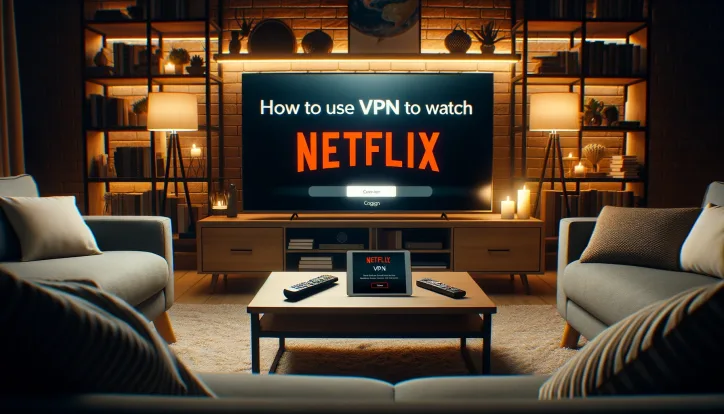
How to Use Netflix with VPN: Guide for Nomads & Travelers

What is a VPN on iPhone: Why You Absolutely Must Have One

What Does a VPN Hide? Answer: Most Things But Not Everything
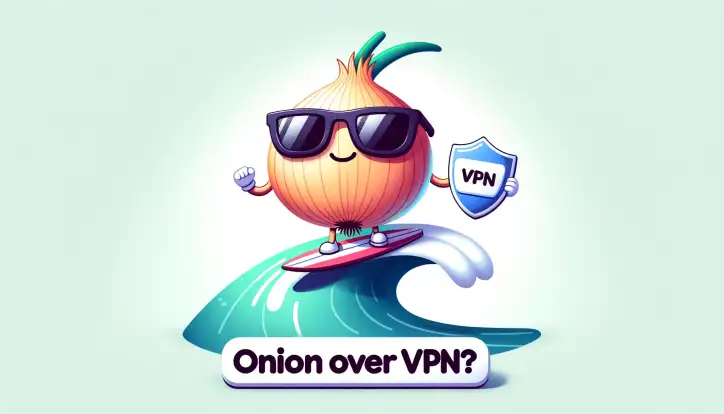
What is Onion Over VPN: The Ultimate Online Protection?

How to Use VPN on Xbox: An Easy Step by Step Guide

What is P2P VPN: A Comprehensive Guide for Digital Nomads
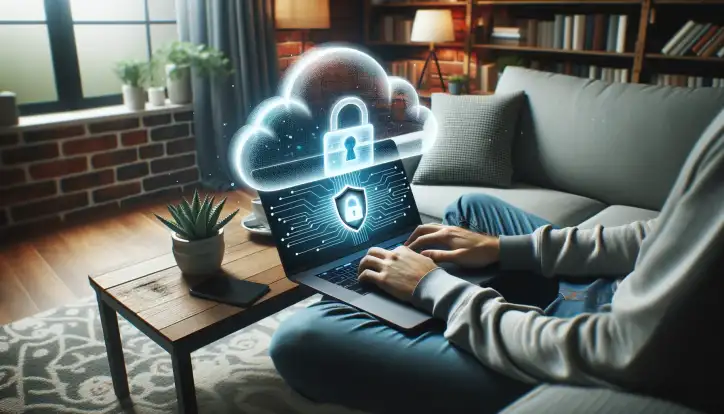
Why Use a VPN at Home: Top 7 Reasons You Didn't Know About
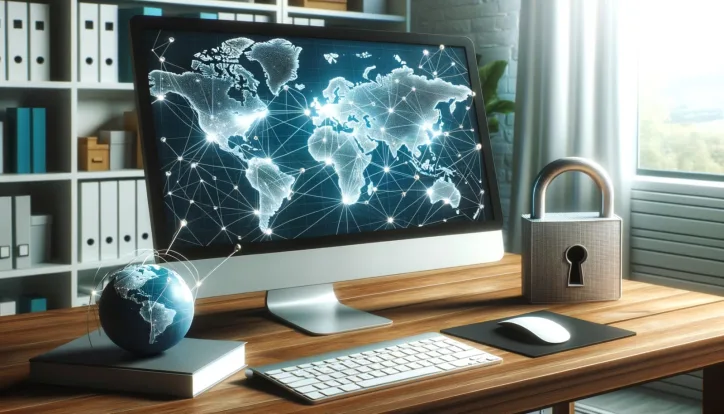
How Secure is a VPN: An In-Depth Analysis

What is a VPN Router? A Beginner's Guide

How Do I Know My VPN is Working? Here's How to Check

How to Use a VPN on a School Chromebook: Step-by-Step Guide

What is Open VPN: The Definitive User Guide
